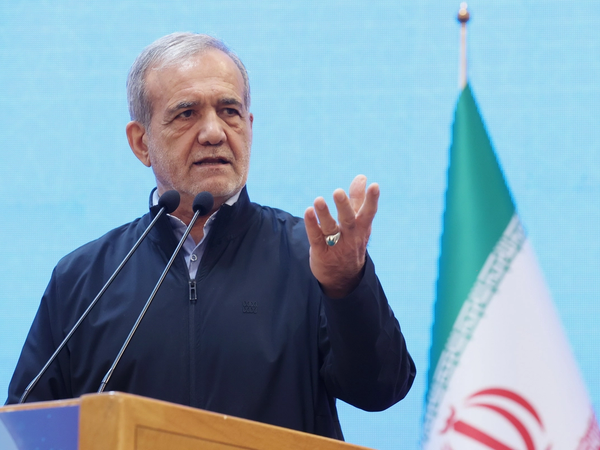In a rare outburst, Iranian President Masoud Pezeshkian has lambasted Iran's parliament for its role in Iran's economic crisis.
In a speech on Sunday during National Exports Day, Pezeshkian criticized the commitments imposed by parliament, arguing that they have placed excessive burdens on the state and contributed to the country's economic challenges.
"The commitments that the parliament has imposed on governments do not align with reality," Pezeshkian said, adding, "On one hand, they have created a debt-ridden government with imbalances in banks and funds, and then they say, 'Solve it.'"
His remarks come as Iran continues to grapple with the economic consequences of US oil export and banking sanctions, which have driven the country into a financial downturn.
"We are at war—a war that these dishonorable people [the West] have imposed on us, worsening the situation day by day. Today, it's not a missile war, but a war of ideas and production," he stated, in what appeared as a political jab against hardliners, who have the majority at the parliament.
Amid such admissions, criticism of the government’s handling of the economic crisis has intensified, particularly from the media affiliated with Iran's Islamic Revolutionary Guard Corps (IRGC). One of the primary targets of this criticism is Abdolnaser Hemmati, Iran’s Minister of Finance, who has come under fire for mentioning sanctions as the greatest economic issue for the country.
In a report by the IRGC-affiliated Tasnim news website, Hemmati was described as the wrong choice for minister of economy. The report accused him of acknowledging the effects of Western sanctions, which the agency claims reveals Tehran's empty hands to its adversaries.
Hemmati, who recently tweeted that “implementing economic reforms and efforts to reduce sanctions is the key to solving the country’s problems,” was further lambasted by Tasnim.
"Mr. Hemmati, who apparently knows more about media than economics, last night posted a tweet that seemed more like a dangerous signal and message of weakness to the enemy, emphasizing his inability to solve economic problems without lifting the sanctions. It appears that he has mistakenly occupied the position of minister of economy,” Tasnim wrote.
Iran’s economy has been impacted by US-led sanctions, which have crippled its oil revenues, devalued the rial, and driven annual inflation to above 40%. The national currency reached a near-historic low on Sunday, with the US dollar trading at 646,000 rials, marking an increase of close to 10% since August.
The stock market, too, reflected the broader economic instability, with Tehran’s exchange losing approximately 19,000 units on Sunday, on top of 24,000 on Saturday, standing at nearly 2 million points.
As the country’s financial situation worsens, fears of a regional conflict with Israel have prompted Iranians to safeguard their wealth by converting assets into more stable investments like gold. The price of gold coins has surged, with values reaching nearly 560 million rials—an increase of 22 million rials in just one day.
Reza Gheibi, an economic expert, told Iran International that the shift to gold and foreign currency is a direct result of public fears over the future of the Iranian economy. "Iran’s relentless regional aggression and its deeply ingrained ideological perspectives will prevent the country from finding a way out of this crisis," Gheibi said.
Meanwhile, Arash Azarmi, an economic journalist, predicted that as the economic crisis deepens, internal tensions between Pezeshkian and the hardline opposition aligned with Supreme Leader Ali Khamenei will become more pronounced.
In an interview with Iran International, Azarmi also noted that any economic reforms are unlikely to succeed under US sanctions. "As long as these sanctions are in place, Iran’s trade is illegal and unofficial. BRICS and Shanghai Cooperation Organization cannot offer a solution," he remarked.
As economic tensions rise and Iran remains isolated from the global market, the country’s leadership continues to face growing pressure with critics both inside and outside the government voicing their frustrations.
